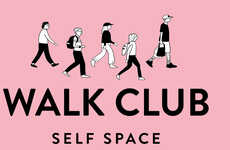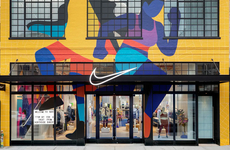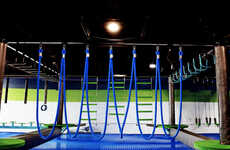



Young consumers create formalized offline hobby communities
Trend - Young consumers are deliberately seeking out analog hobbies and forming structured social groups around traditional pastimes like chess, backgammon, and mahjong. This movement extends beyond just casual interest - enthusiasts are creating formal clubs, organizing regular meetups, and building communities around these activities.
Insight - The surge in analog hobbies among Gen Z and Millennials reflects a deeper desire to combat digital fatigue and find meaningful social connections in an increasingly virtual world. While previous generations may have naturally gathered for these activities, younger consumers are more deliberately and systematically pursuing offline hobbies as a form of self-care and community building. This represents a shift from passive digital consumption to active participation in curated offline experiences.
Insight - The surge in analog hobbies among Gen Z and Millennials reflects a deeper desire to combat digital fatigue and find meaningful social connections in an increasingly virtual world. While previous generations may have naturally gathered for these activities, younger consumers are more deliberately and systematically pursuing offline hobbies as a form of self-care and community building. This represents a shift from passive digital consumption to active participation in curated offline experiences.
Workshop Question - How might your brand facilitate meaningful offline connections for digital natives?
Trend Themes
1. Racket-sport Accessibility - Fairgrounds redefines racket sport participation by removing traditional membership barriers, tapping into a growing interest in accessible sports engagement.
2. Mindful Movement - Self Space's Walk Club highlights a shift towards more inclusive and mentally enriching forms of exercise as alternatives to high-intensity workouts.
3. Community-centric Retail - Bold Fork Books exemplifies the rising demand for retail spaces that combine specific interests with community engagement, creating immersive consumer experiences.
Industry Implications
1. Sports and Recreation - The broadening of racket sports accessibility reflects opportunities within sports amenities to become more inclusive and community-focused.
2. Health and Wellness - Innovations like mindfulness-promoting clubs illustrate the health industry's potential to expand into more diverse, wellness-oriented lifestyle offerings.
3. Retail and Hospitality - The fusion of retail with community engagement, as seen in specialized bookstores, showcases evolving consumer preferences for experiential shopping environments.



































